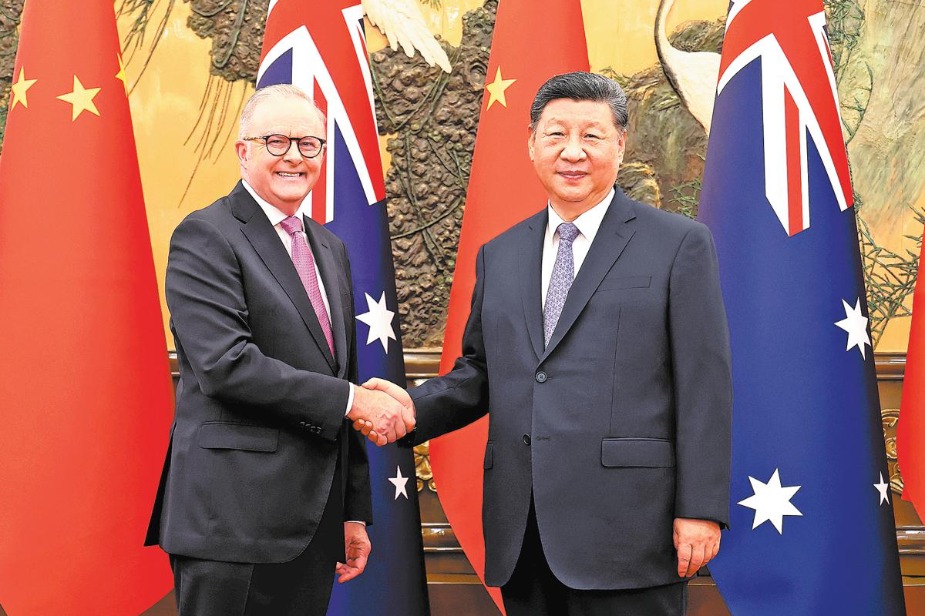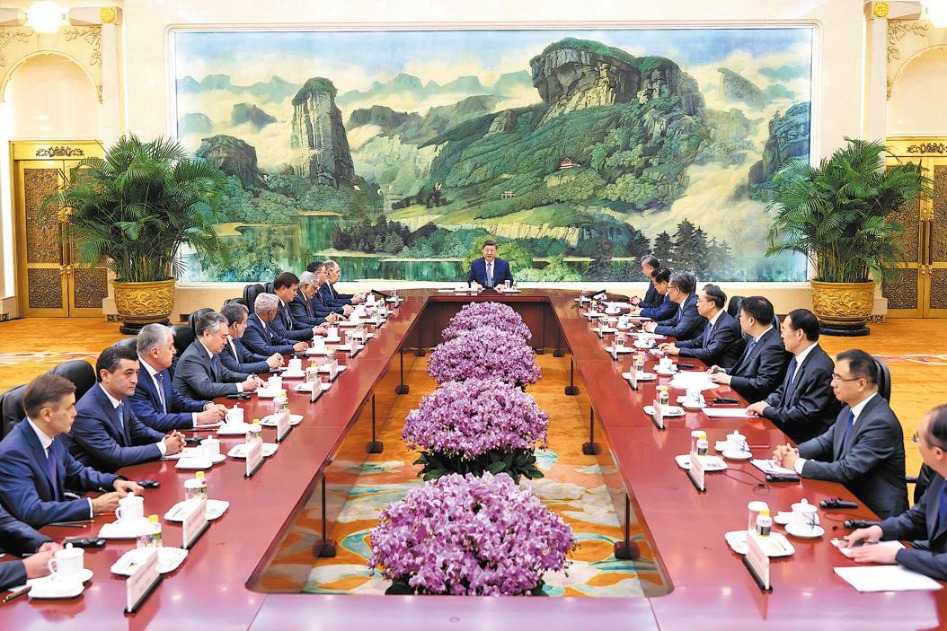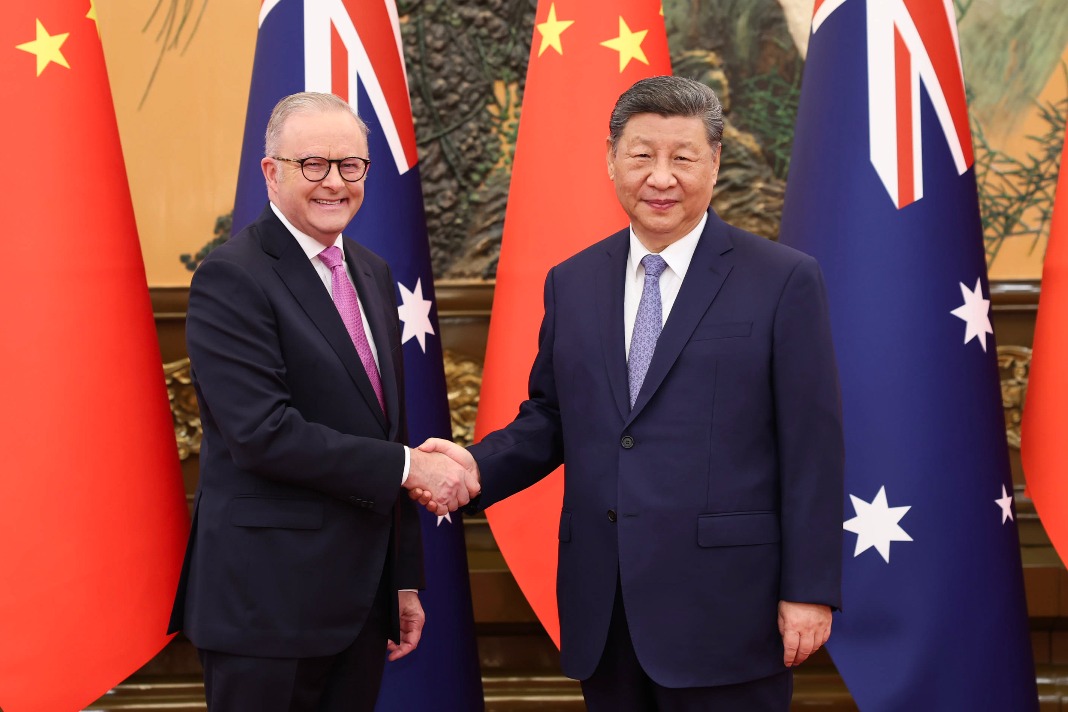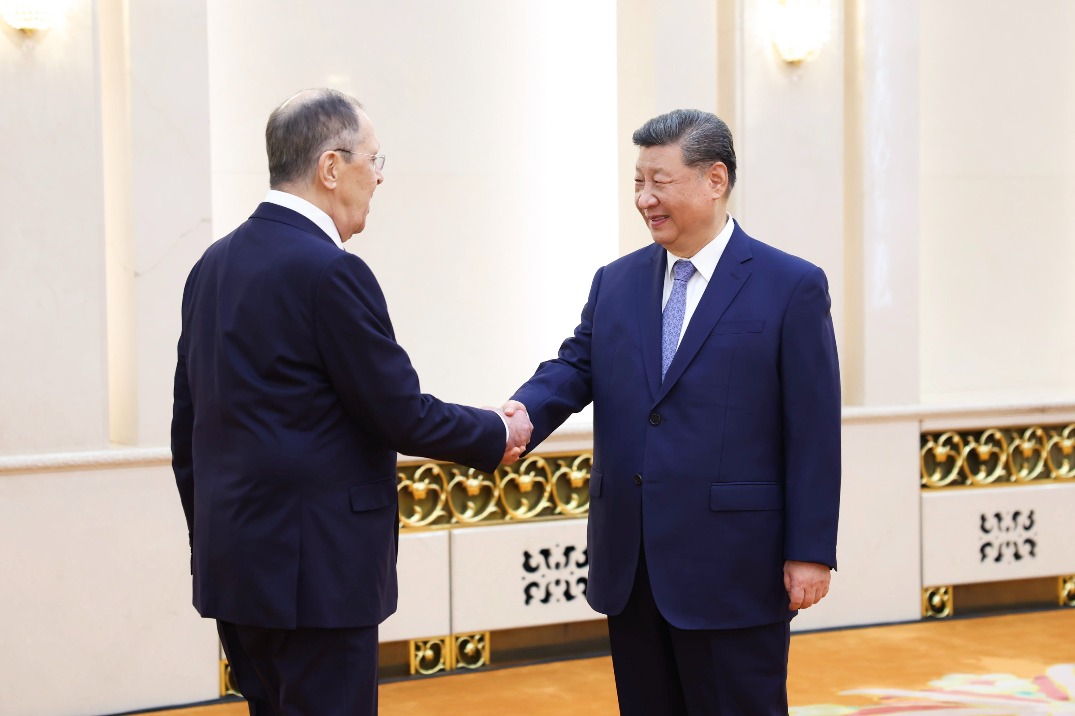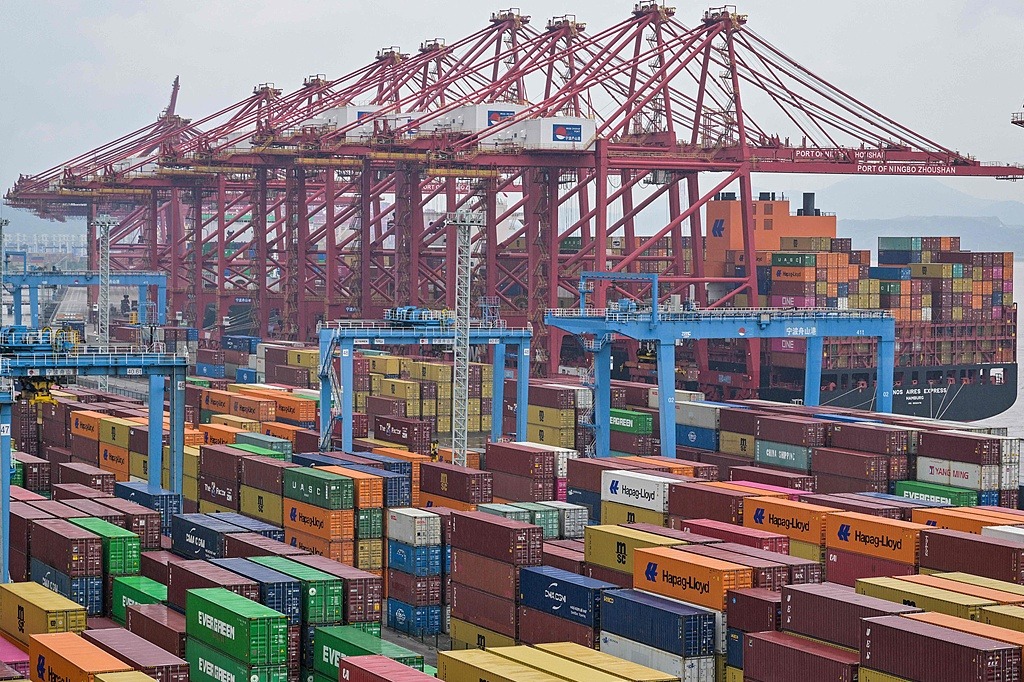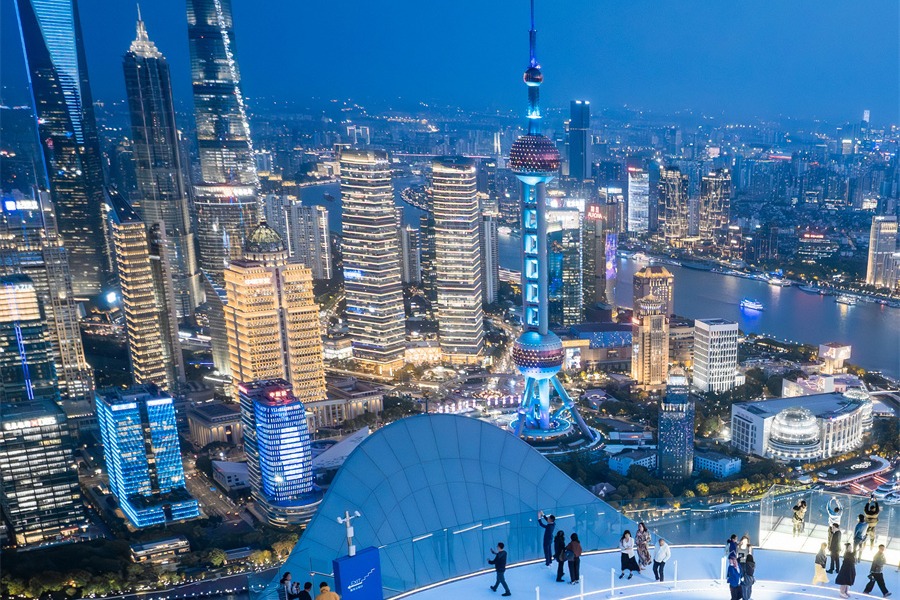Why China still anchors global supply chains

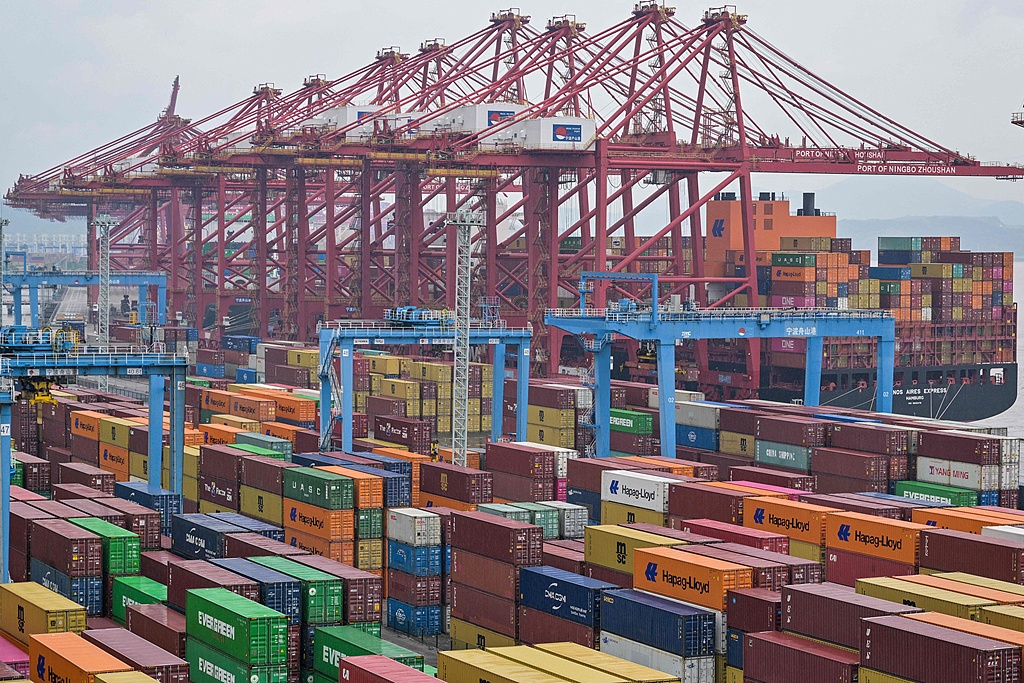
Editor's note: Amid rising protectionism and global supply chain disruptions, Li Xingqian, vice-chairman of the China Council for the Promotion of International Trade, emphasizes China's vital role in global supply chains. In an in-depth conversation for Dialogues with Thinkers, China Daily's high-end interview program, he explains to China Daily's Yao Yuxin the vision behind the China International Supply Chain Expo — as a platform for rebuilding trust, resilience and inclusive growth. Following are excerpts from the interview.
Q1: Some foreign media portray the "China + 1" strategy as a tool for hedging against risks in China. What's your view on this? And what makes China irreplaceable in global supply chains?
A: Supply chains are reshaped by both economic and non-economic factors. For some foreign enterprises, the "China + 1" strategy refers to companies expanding production beyond China while maintaining operations in China. As a form of supply chain diversification, it is a natural outcome of market forces being at play.
After more than four decades of reform and opening-up, China has become a global manufacturing powerhouse — a status earned through efficiency and scale. Foreign businesses operating "in China for the world" have shown that this model is effective. Some firms now seek lower-cost alternatives due to rising labor costs, which is understandable if based on economic rationale. Many Chinese enterprises are also diversifying their investment and market destinations.
However, describing "China+ 1" as a "risk mitigator" is misleading and politically motivated. Some Western politicians politicize economic decisions, putting "reshoring", "near-shoring", and "friend-shoring" under the banner of so-called political correctness. The aim is to curb China's manufacturing upgrading.
That China is irreplaceable in the global supply chains is determined by economic laws and proven by business decisions. This is reflected in five key areas:
First, China is the world's largest manufacturing economy. It has the most comprehensive and complete industrial system. For more than 15 years, it has led the world in manufacturing output, with more than 40 percent of its major industrial products ranking first globally in terms of production volume.
Second, China is the second-largest consumer market in the world. With the largest middle-income group in the world and per capita GDP of more than $10,000, Chinese people's demand has shifted from quantity to quality, becoming a stabilizing force in global consumption.
Third, China today is a major innovation hub, ranking among the global leaders in innovation clusters and patent filings. Chinese investment in R&D is the second-highest in the world, transforming China from "the world's factory" to "the world's market".
Fourth, the country is a human capital powerhouse. With more than 800 million workers, as well as over 10 million university graduates each year, China's economy is being powered more by talent dividend, rather than demographic dividend.
And fifth, China has been continuously improving its business environment. Through institutional opening-up and alignment with international high standards, China offers a transparent, market-oriented, predictable investment environment, attracting more and more global capital and talents.
Q2: What is your response to some Western politicians' claims of the world being "overdependent" on China?
A: The "overdependent on China" claim is a concern raised not by business leaders, but by certain politicians. It's an attempt to weaken supply chain ties with China under the guise of "de-risking". It reflects a Cold War mentality and has no basis in economic reality.
On the one hand, it is an excuse used to justify the politicization of trade and investment. By hyping up the claim of "overdependence", these politicians are intensifying their "de-risking" and "decoupling" strategies, and turning a blind eye to the global momentum toward openness and collaboration. There indeed are risks and sources of instability in the global economy, but China is not one of them.
On the other hand, the politicians are using the "overdependence" claim to deflect public attention from their domestic policy failures. China has earned its position in the global supply chains through decades of development and integration into the global economy — quite unlike the isolationist and speculative policies of some countries. By shifting the blame onto China while ignoring their own failures, they are acting utterly irresponsibly.
In our experience, when promoting trade and investment, what businesses truly care about is reliable production, complete supply chains, and a fair, transparent environment. So our strategy is simple: stay focused on high-level opening-up, encourage innovation, upgrade industries, and cultivate a strong domestic market. We are fully confident in China's role.
Q3: Despite rising global uncertainty and protectionism, many multinational companies are doubling down on China by participating in the China International Supply Chain Expo. What do you think is behind this trend, and what message does the CISCE aim to send?
A: Although relatively new, the CISCE is already a major global platform. The third edition of the expo, to be held from July 16 to 20, will feature more than 650 exhibitors from more than 70 countries and regions, with more than one-third of them from abroad. Many are leading firms in their supply chains.
The companies keep coming back, because the CISCE's theme resonates with the international business community. A stable, resilient global supply chain is a shared need of countries and industries. Also, supply chains are now strategic assets. In the global economy, industrial competitiveness depends not only on products or technology but also on the strength of supply chains behind them. Not to mention that the companies trust China's industrial ecosystem. With digital technology and artificial intelligence driving a new industrial revolution, the companies see China as a key hub for innovation and global connectivity.
The CISCE is a global public good. We hope to provide a platform where companies of all sizes can connect, cooperate and co-create. Whether you are looking for suppliers, partners, applications or solutions, the CISCE is where deals happen, ideas converge, and new values are created.
Q4: As the global supply chains become more politicized, can China build a "depoliticized circle of friends" through the CISCE? How does this differ from US-led "decoupling clubs"?
A: That's precisely our intention. The organizer of the CISCE, the China Council for the Promotion of International Trade, is China's largest trade promotion agency. We are committed to serving global businesses and building international partnerships.
The CISCE is the world's first national-level expo focused on supply chains. We follow World Trade Organization rules, respect market dynamics and the spirit of entrepreneurship, and offer end-to-end professional services for all participants.
The CISCE stands for mutual benefit. It is open to all countries, regions, businesses, research institutions and start-ups. It helps enterprises find partners, identify opportunities and unlock solutions across the value chain.
The CISCE is inclusive. At the last expo, half of the overseas exhibitors came from countries involved in the Belt and Road Initiative. This year, we are offering free booths and support to companies from least-developed countries such as Rwanda and Mozambique, in order to help them integrate into the global economy.
The "chain" in the CISCE is not about decoupling; it's about connecting. We aim to build more resilient, efficient and vibrant supply chains that support global economic recovery and shared prosperity. Through the CISCE, we hope to expand cooperation, bridge divides and contribute to a more open and inclusive world.
The views don't necessarily represent those of China Daily.
If you have a specific expertise, or would like to share your thought about our stories, then send us your writings at opinion@chinadaily.com.cn, and comment@chinadaily.com.cn.


















